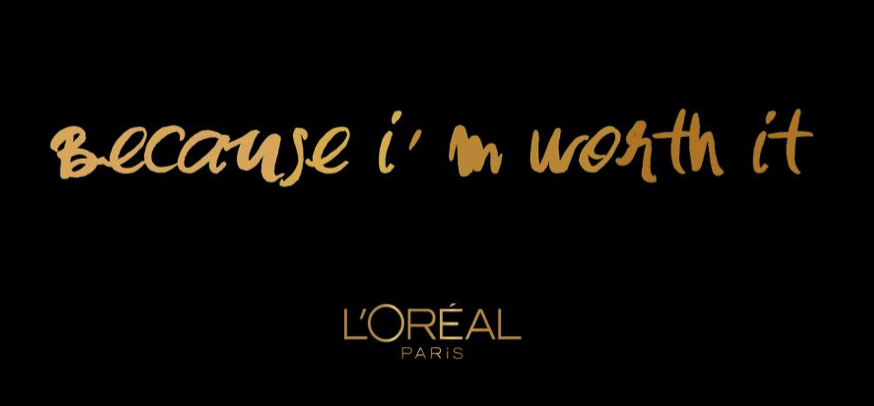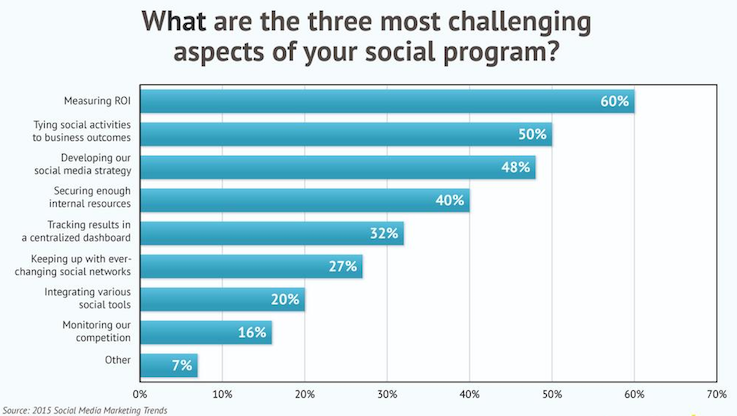Social media – is it worth it?
“yeah... I’m worth it.”
We’re all familiar with that L’Oreal strapline – “because I’m worth it
” The phrase was first used by L’Oreal in 1973, and struck a chord with its target audience of the women of the day, women who at that time were becoming increasingly independent
Since then the phrase “because I’m worth it” has even become part of our social fabric, not only entering every day language but also taking on a meaning over and above the original intention
In fact, L’Oreal claim that today around 80% of women “recognise and respond to this positive phrase and powerful sentiment
” So for L’Oreal it was definitely worth it, and for any marketer today that is the key question
Is it worth it? Especially if you have limited resources you need to focus your money, time and effort on those marketing channels that deliver the best returns
So where does social media fit into all this? There is tremendous pressure from all sides to be ever present on all the major social media channels
FOMO was never more true than in marketing, whether you are doing major B2B marketing for a global corporation, a smaller business selling high end products to discerning customers, or even an PPC agency for loan companies: the pressure is the same
Be out there everywhere or lose out
But whilst being busy on social media can make you feel that you are doing all the right things and interacting effectively with existing and potential customers, how much do you actually need to do to be effective? Is there a danger of excess time and effort being deployed when it could be diverted to other channels? As a society we are becoming obsessed with social media, and the temptation to drift into wasting time on social media overkill – and justifying it as essential marketing – is strong
Social media attribution is not easy
In fact it is a major problem for a lot of marketers
Recent research from econsultancy indicates that:
- 46% of B2B marketers say they’re not sure whether any social channels have generated business revenue
- 80% of marketers use engagement as their primary success metric, 56% focus on site traffic
- 60% of marketers cite “‘measuring ROI’”as one of their top three social media marketing challenges; 50% of say “tying social media activities to business o

So where does social media fit into all this? There is tremendous pressure from all sides to be ever present on all the major social media channels
FOMO was never more true than in marketing, whether you are doing major B2B marketing for a global corporation, a smaller business selling high end products to discerning customers, or even an PPC agency for loan companies: the pressure is the same
Be out there everywhere or lose out
But whilst being busy on social media can make you feel that you are doing all the right things and interacting effectively with existing and potential customers, how much do you actually need to do to be effective? Is there a danger of excess time and effort being deployed when it could be diverted to other channels? As a society we are becoming obsessed with social media, and the temptation to drift into wasting time on social media overkill – and justifying it as essential marketing – is strong
Social media attribution is not easy
In fact it is a major problem for a lot of marketers
Recent research from econsultancy indicates that:
- 46% of B2B marketers say they’re not sure whether any social channels have generated business revenue
- 80% of marketers use engagement as their primary success metric, 56% focus on site traffic
- 60% of marketers cite “‘measuring ROI’”as one of their top three social media marketing challenges; 50% of say “tying social media activities to business outcomes”
The recent CMO Survey also indicated that whilst social media spending has increased 234% from 2009 to 2017 – accounting for 11
7% of total marketing budgets – only 20
3% of marketers say they are able to prove the impact quantitatively
However, it is possible to measure ROI from social media
Measuring ROI on social media will have multiple advantages for your marketing department
For example:
- it will change the perception of social media within your organization
- it will demonstrate the potential impact that social media could have on other departments outside of marketing
- it enables you to see more clearly where your marketing resources are being used most effectively and

So if this is an area that you are struggling with, you’re not alone
The recent CMO Survey also indicated that whilst social media spending has increased 234% from 2009 to 2017 – accounting for 11
7% of total marketing budgets – only 20
3% of marketers say they are able to prove the impact quantitatively
However, it is possible to measure ROI from social media
Measuring ROI on social media will have multiple advantages for your marketing department
For example:
- it will change the perception of social media within your organization
- it will demonstrate the potential impact that social media could have on other departments outside of marketing
- it enables you to see more clearly where your marketing resources are being used most effectively and to tweak your strategy accordingly
- it can help you to identify gaps in your overall strategy, key messages, and content
- it enables you to gain a better understanding of customer perceptions and preferences
If you want to measure social media ROI, stop wasting your time doing software demos and attending webinars
Just figure out what you want to track, where you can track it, think about both current customers and new customers, and go do it
”So what are some of the ways you can go about measuring ROI on social? The following three steps will prove invaluable: Scored a goal1: Set objectives and goalsFirst you need to be realistic about your goals
You need to agree your overall social media objectives and then set specific measureable goals based on each of them
Examples of objectives might be:
- Business conversions eg lead generation or landing page conversion
- Brand awareness or perception
- Customer experience
- Security and risk mitigation
- Once you have set your objectives there then need to be measurable goals for each
For example specific numbers of leads or specific dates by which key milestones are to be achieved
The obvious ones to start with are the social metrics such as followers, likes, comments, and shares
These have often been dismissed as purely vanity measures, but can still be a significant indicator of the overall health of your social media presence
They can also provide a quick means of comparing yourself with your competition, and inform the type of content with which your audience is engaging
However, social metrics should not be used in isolation
You also need to be able to measure how closely your social media activity is related to – and supports – your business objectives
This is essential for proving its relevance to all stakeholders within your organisation
Some examples of metrics that you could use for this purpose are:
- Site traffic
- Reach
- Audience engagement
- Leads generated
- Conversions
- Revenue
- 3: Use effective toolsOnce you know what you need to measure, there are a variety of tools available on the market to help you
Tools that can help you to set up conversion funnels, track the customer journey and actions, analyse data, and then report effectively on the results
The best known toolset is Google Analytics
This will enable you to track website traffic, and the number of conversions and sign-ups that originate from social media campaigns
There is also Facebook Pixels, which enables you t